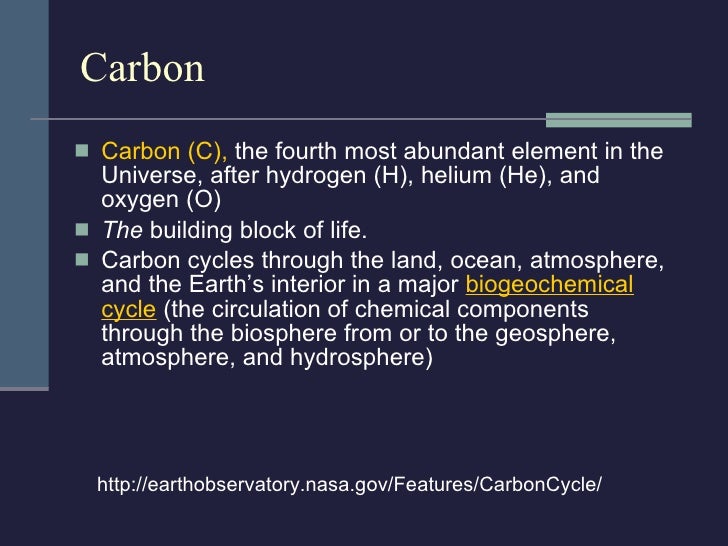Carbon is not only the 4th most abundant element in the universe it is an essential element to all living things on earth carbon is present in all living things

Carbon: The Essential Element for All Living Things

Carbon, the fourth most abundant element in the universe, holds a crucial role in sustaining life on Earth. It is indispensable to all living organisms, from the tiniest microorganisms to the largest mammals. Its presence can be found in every living thing, and its significance cannot be overstated.
Carbon’s ubiquity in the universe is unrivaled, as shown by its position on the list of most abundant elements. The image below demonstrates this fact:

Carbon is unique in its ability to form strong chemical bonds with other elements, giving it immense versatility. These bonds allow carbon to form the backbone of vital biological molecules, such as proteins, lipids, nucleic acids, and carbohydrates, that are essential for life processes. Without carbon, life as we know it simply wouldn’t exist.
One of the reasons carbon plays a vital role in our planet’s ecosystem is its ability to cycle through various forms. This phenomenon is known as the carbon cycle. It involves the exchange of carbon between atmospheric carbon dioxide (CO2), living organisms, oceans, and other geological reservoirs. This cycle maintains a delicate balance of carbon, which is essential for all life forms.
Plants, as primary producers, are of utmost importance in the carbon cycle. Through photosynthesis, they take in carbon dioxide from the air and convert it into organic compounds, releasing oxygen as a byproduct. This process not only helps regulate atmospheric levels of carbon dioxide, a greenhouse gas, but also serves as a fundamental source of energy for all other organisms.
Carbon is further transferred through the food chain as plants are consumed by herbivores, which, in turn, become prey for carnivores. The carbon stored within these organisms is released back into the environment upon their death and subsequent decay. This decomposition processes return the carbon to the soil or bodies of water, fueling the growth of new organisms and continuing the carbon cycle.
It is noteworthy that human activities heavily influence the carbon cycle. The burning of fossil fuels, deforestation, and various industrial processes release additional carbon dioxide into the atmosphere, significantly altering the natural balance. This increase in atmospheric carbon dioxide contributes to global climate change and poses a threat to ecosystems worldwide.
In conclusion, carbon stands as a fundamental element, not only in the universe but also for sustaining life on Earth. Its ability to form numerous chemical bonds and its participation in the carbon cycle are pivotal for the existence and functionality of living organisms. Understanding the significance of carbon helps us appreciate the delicate balance of nature and reminds us of our responsibility to preserve and protect the planet we call home.
Source: Lumen Learning - Carbon
Related Posts
Quick Links
Legal Stuff

